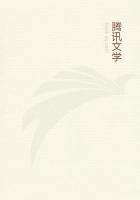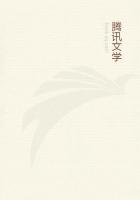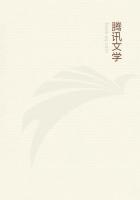4 Only, whereas the passion for doing good is apt to be overhasty in determining what reason and the will of God say, because its turn is for acting rather than thinking and it wants to be beginning to act; and whereas it is apt to take its own conceptions, which proceed from its own state of development and share in all the imperfections and immaturities of this, for a basis of action; what distinguishes culture is, that it is possessed by the scientific passion as well as by the passion of doing good; that it demands worthy notions of reason and the will of God, and does not readily suffer its own crude conceptions to substitute themselves for them. And knowing that no action or institution can be salutary and stable which are not based on reason and the will of God, it is not so bent on acting and instituting, even with the great aim of diminishing human error and misery ever before its thoughts, but that it can remember that acting and instituting are of little use, unless we know how and what we ought to act and to institute.
5 This culture is more interesting and more far-reaching than that other, which is founded solely on the scientific passion for knowing. But it needs times of faith and ardour, times when the intellectual horizon is opening and widening all round us, to flourish in. And is not the close and bounded intellectual horizon within which we have long lived and moved now lifting up, and are not new lights finding free passage to shine in upon us? For a long time there was no passage for them to make their way in upon us, and then it was of no use to think of adapting the world's action to them. Where was the hope of making reason and the will of God prevail among people who had a routine which they had christened reason and the will of God, in which they were inextricably bound, and beyond which they had no power of looking? But now the iron force of adhesion to the old routine,--social, political, religious,--has wonderfully yielded;the iron force of exclusion of all which is new has wonderfully yielded.
The danger now is, not that people should obstinately refuse to allow anything but their old routine to pass for reason and the will of God, but either that they should allow some novelty or other to pass for these too easily, or else that they should underrate the importance of them altogether, and think it enough to follow action for its own sake, without troubling themselves to make reason and the will of God prevail therein. Now, then, is the moment for culture to be of service, culture which believes in making reason and the will of God prevail, believes in perfection, is the study and pursuit of perfection, and is no longer debarred, by a rigid invincible exclusion of whatever is new, from getting acceptance for its ideas, simply because they are new.
6 The moment this view of culture is seized, the moment it is regarded not solely as the endeavour to see things as they are, to draw towards a knowledge of the universal order which seems to be intended and aimed at in the world, and which it is a man's happiness to go along with or his misery to go counter to,--to learn, in short, the will of God,--the moment, I say, culture is considered not merely as the endeavour to see and learn this, but as the endeavour, also, to make it prevail, the moral, social, and beneficent character of culture becomes manifest.
The mere endeavour to see and learn the truth for our own personal satisfaction is indeed a commencement for making it prevail, a preparing the way for this, which always serves this, and is wrongly, therefore, stamped with blame absolutely in itself and not only in its caricature and degeneration.
But perhaps it has got stamped with blame, and disparaged with the dubious title of curiosity, because in comparison with this wider endeavour of such great and plain utility it looks selfish, petty, and unprofitable.
7 And religion, the greatest and most important of the efforts by which the human race has manifested its impulse to perfect itself,--religion, that voice of the deepest human experience,--does not only enjoin and sanction the aim which is the great aim of culture, the aim of setting ourselves to ascertain what perfection is and to make it prevail; but also, in determining generally in what human perfection consists, religion comes to a conclusion identical with that which culture,--culture seeking the determination of this question through all the voices of human experience which have been heard upon it, of art, science, poetry, philosophy, history, as well as of religion, in order to give a greater fulness and certainty to its solution,--likewise reaches. Religion says: The kingdom of God is within you; and culture, in like manner, places human perfection in an internal condition, in the growth and predominance of our humanity proper, as distinguished from our animality. It places it in the ever-increasing efficacy and in the general harmonious expansion of those gifts of thought and feeling, which make the peculiar dignity, wealth, and happiness of human nature. As I have said on a former occasion:
'It is in making endless additions to itself, in the endless expansion of its powers, in endless growth in wisdom and beauty, that the spirit of the human race finds its ideal. To reach this ideal, culture is an indispensable aid, and that is the true value of culture.' Not a having and a resting, but a growing and a becoming, is the character of perfection as culture conceives it; and here, too, it coincides with religion.
8 And because men are all members of one great whole, and the sympathy which is in human nature will not allow one member to be indifferent to the rest or to have a perfect welfare independent of the rest, the expansion of our humanity, to suit the idea of perfection which culture forms, must be a general expansion. Perfection, as culture conceives it, is not possible while the individual remains isolated.















